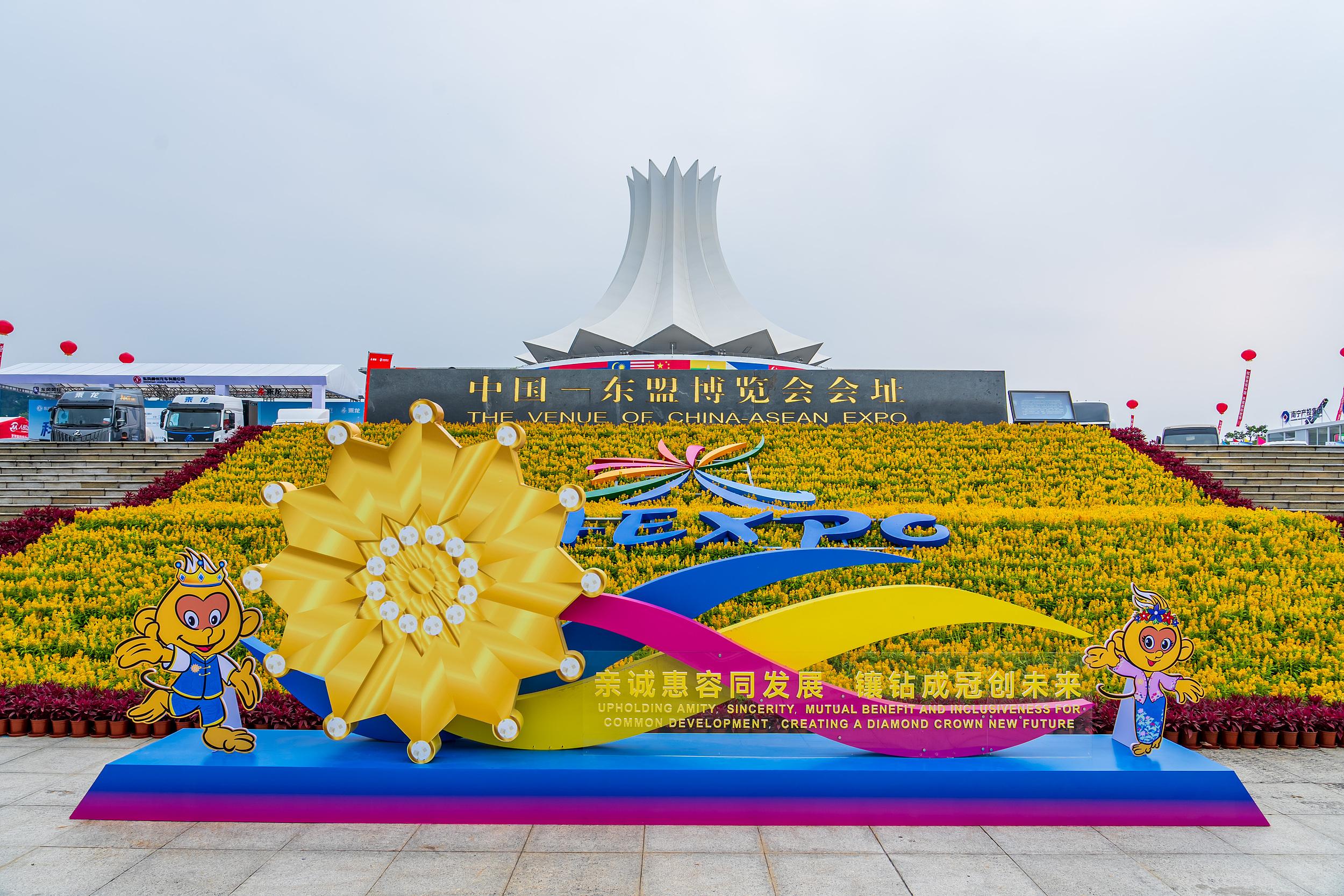China-ASEAN FTA Upgrade to Turbocharge Regional Trade

The 21st China-ASEAN Expo and the China-ASEAN Business and Investment Summit in Nanning, South China's Guangxi Zhuang autonomous region, on September 24, 2024. (PHOTO: VCG)
By GONG Qian
A significant move to facilitate enhanced economic, trade, and investment cooperation between China and ASEAN was announced on October 10, when respective leaders shared the substantial conclusion of the Version 3.0 China-ASEAN Free Trade Area (FTA) upgrade negotiations on the sidelines of the 27th China-ASEAN Summit.
While addressing the meeting, Chinese Premier Li Qiang said the important outcome provides institutional safeguards for China and ASEAN to build super-sized markets together. Li said this outcome would drive East Asian economic integration, while demonstrating their unequivocal support for multilateralism and free trade.
Considering the global economy is still seeing a sluggish recovery, the upgrade will bring more stability and certainty to the regional economic integration and global development.
Speaking at the summit, Singapore Prime Minister Lawrence Wong said the upgrade is an important move, especially in this time of growing protectionism in the world. "It will send a very clear and important message to everyone on the importance of free trade and win-win market cooperation," he said.
The role of the China-ASEAN FTA in boosting economic prosperity and strengthening economic resilience in the region is indisputable. Since the 2010 inception of the agreement that covers a market of two billion people, ASEAN's trade with China has more than tripled, leaping from 235.5 billion USD to 696.7 billion USD in 2023. China has remained ASEAN's largest trading partner for the past 15 years and becomes ASEAN's third largest source of foreign direct investment.
The 3.0 upgrade will enhance cooperation covering nine areas including digital and green economies, supply chain connectivity, standards and technical regulations, competition and consumer protection, and micro, small, and medium enterprises (MSMEs), according to China's Ministry of Commerce (MOFCOM). Wong said that China can contribute to ASEAN's transition to cleaner and low-carbon fuels, and help strengthen energy resilience in the region.
Indonesia Vice President Ma'ruf Amin called for a stronger cooperation between ASEAN and China. Amin said market access expansion, innovation, and adaptation are pivotal to prosperity, adding that the substantially completed upgrade to the trade pact would strengthen both sides' partnership in green and digital economy, supply chain, as well as support for MSMEs.
"Once implemented, the agreement will create a more business-friendly and future-oriented environment for companies to tap into opportunities between ASEAN and China," according to a press release by Singapore's Ministry of Trade and Industry.
Wong said that the close bond between ASEAN and China goes back for centuries. "It is a relationship where countries big or small are treated as equals, and work together on the basis of mutual trust, mutual respect and mutual benefit," he said.
Now, with the Regional Comprehensive Economic Partnership (RCEP) and China-ASEAN FTA 3.0 in place, ASEAN Secretary-General Kao Kim Hourn said he is "confident that trade and investment between ASEAN, China, and the rest of the RCEP partners will continue to flourish for the benefit of the people in this wider region," during a speech at the RCEP High-Level Dialogue on Economic and Trade Cooperation in September.






